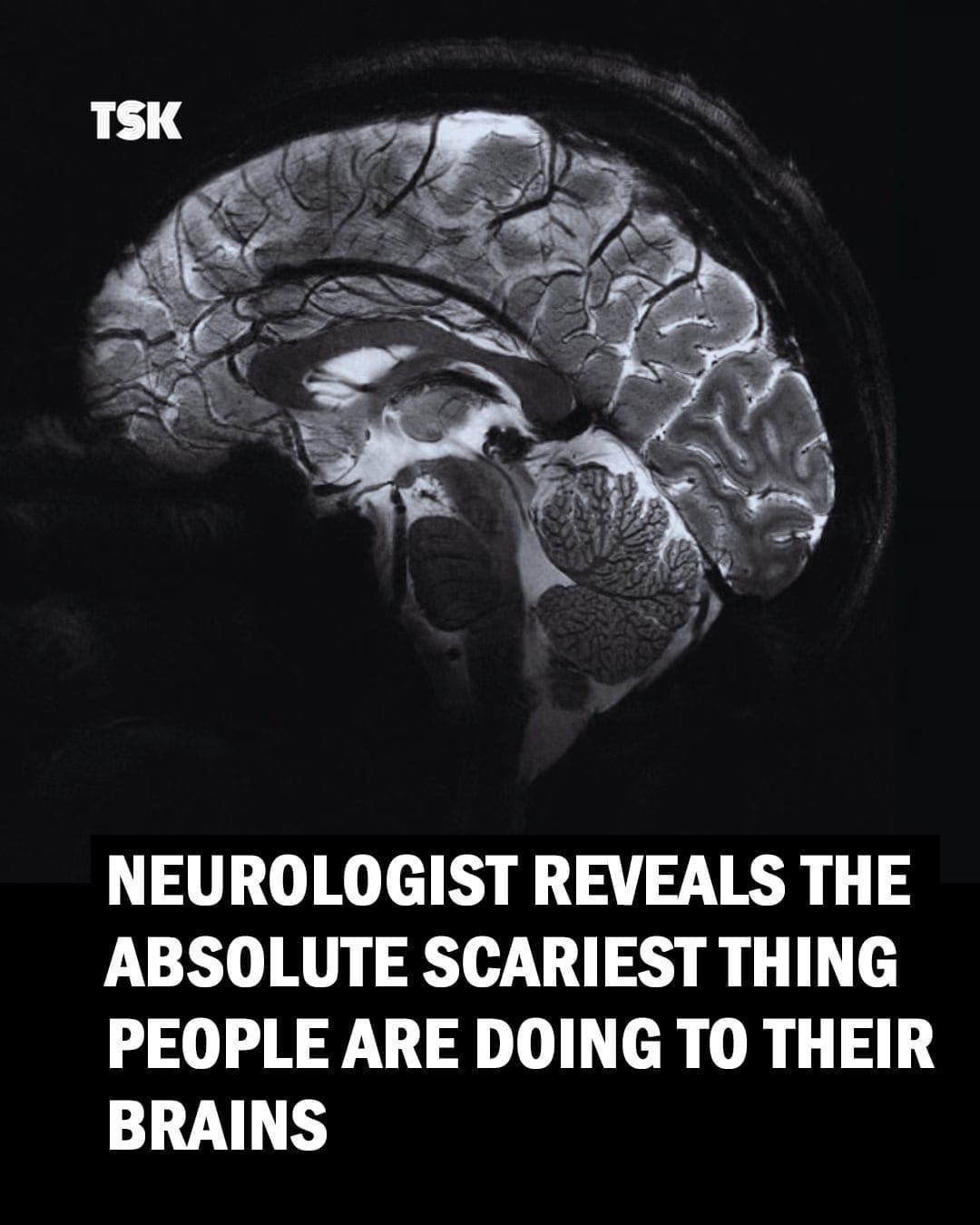🧠 Neurologist Reveals the Absolute Scariest Thing People Are Doing to Their Brains

Modern life has introduced subtle yet dangerous habits that can damage our brains without us even realizing it. Neurologists are increasingly concerned about how these behaviors, over time, impair brain health, emotional balance, and even increase the risk of neurological diseases.
1. Chronic Sleep Deprivation – The Silent Brain Killer
Most adults need 7–9 hours of restorative sleep per night. However, due to demanding schedules and screen exposure, many people are getting far less.
Why it’s scary:
- During deep sleep, the brain uses the glymphatic system to flush out harmful waste products, including beta-amyloid, a protein linked to Alzheimer’s disease.
- Chronic lack of sleep can:
- Shrink brain volume
- Damage synapses (connections between neurons)
- Lead to poor memory consolidation
- Weaken the immune system
- Trigger mood disorders like anxiety and depression
Even just a few nights of bad sleep impair cognitive abilities like decision-making, creativity, and emotional regulation.
2. Digital Overload and the Dopamine Trap
We are glued to our phones and laptops more than ever—scrolling, swiping, refreshing. These constant dopamine spikes are rewiring our brains.
Neurological impact:
- Reduces the prefrontal cortex’s ability to focus and prioritize
- Increases mental fatigue, even when you’re not physically tired
- Creates dependency on constant stimulation, making boredom feel unbearable
- Suppresses deep thought and creativity
Even passive scrolling on social media is linked to increased risks of depression, especially in teens and young adults.
3. Chronic Multitasking – A Myth of Productivity
Multitasking seems efficient, but your brain cannot truly focus on more than one high-level task at a time.
What happens in your brain:
- Your attention switches back and forth rapidly, which drains mental energy
- Reduces memory retention and learning ability
- Increases mental stress and errors in decision-making
- Long-term multitasking can even shrink the gray matter in the anterior cingulate cortex—the region involved in empathy and emotional control
4. Neglecting Mental and Social Stimulation
The brain thrives on challenge, novelty, and connection. Without them, cognitive abilities begin to deteriorate.
Risks include:
- Accelerated cognitive decline
- Increased risk of dementia
- Weakened neural pathways due to disuse (a “use it or lose it” effect)
- Emotional dullness and loneliness
Isolation and passive entertainment (like binge-watching TV) cannot replace the benefits of learning, conversations, or creative hobbies.
5. Living with High Levels of Chronic Stress
Stress is normal, but chronic stress keeps your brain in survival mode.
Biological consequences:
- Constant release of cortisol damages the hippocampus (memory center)
- Reduces neurogenesis (growth of new brain cells)
- Makes you more reactive, less thoughtful
- Can eventually trigger or worsen conditions like depression, PTSD, and cognitive impairment
Stress also disrupts sleep and eating habits, creating a vicious cycle.
🧠 Tips from Neurologists to Protect Your Brain:
| Good Habit | Why It Helps |
|---|---|
| Sleep 7–9 hours/night | Supports memory, mood, and brain detox |
| Take screen breaks | Reduces eye strain and resets dopamine response |
| Practice mindfulness or meditation | Lowers cortisol, improves focus |
| Exercise regularly | Boosts blood flow and promotes neurogenesis |
| Keep learning new things | Builds new synaptic connections |
| Nourish with omega-3 & antioxidants | Protects against oxidative stress and inflammation |
| Limit sugar and processed food | These contribute to brain fog and inflammation |
| Stay socially connected | Supports emotional resilience and cognitive health |